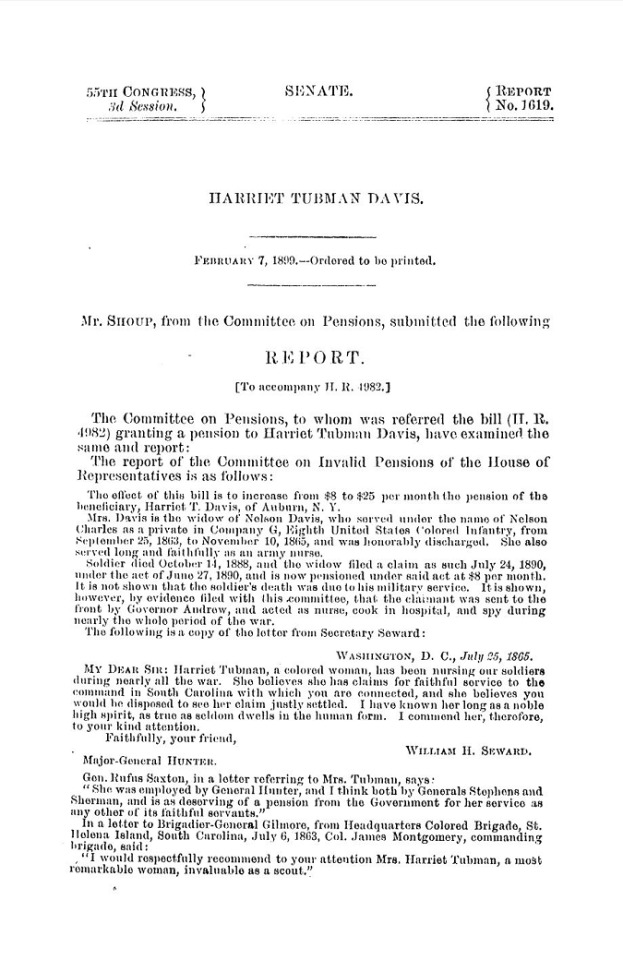#AN OPEN LETTER to THE U.S. HOUSE OF REPRESENTATIVES
Text
An open letter to the U.S. House of Representatives
Please pass the Vote By Mail Tracking Act—HR 5658!
232 so far! Help us get to 250 signers!
I understand that members of the House have introduced a piece of bipartisan legislation that would improve the tracking capabilities for mail-in ballot envelopes. The Vote By Mail Tracking Act—HR 5658—is an administrative bill that would require envelopes to contain a U.S. Postal Service barcode that will enable the tracking of each ballot, satisfy the Postal Service requirements for ballot envelope design and machinable letters and include the Official Election Mail logo. The bill does not require states to adopt any additional mail-in ballot practices outside of the scope of the envelope itself. This should be a no-brainer, regardless of party. Will the Representative co-sponsor it?
▶ Created on November 20, 2023 by Jess Craven
📱 Text SIGN PQANRY to 50409
🤯 Liked it? Text FOLLOW JESSCRAVEN101 to 50409
#An open letter to the U.S. House of Representatives#Please pass the Vote By Mail Tracking Act—HR 5658!#bipartisan legislation#Postal Service#regardless of party. Will the Representative co-sponsor it?#▶ Created on November 20 2023 by Jess Craven#📱 Text SIGN PQANRY to 50409#🤯 Liked it? Text FOLLOW JESSCRAVEN101 to 50409#JESSCRAVEN101#PQANRY#RESISTBOT#House#Representatives#Pass#Vote#By#Mail#Tracking#Act#HR5658#Bipartisan#Legislation#Improve#Capabilities#Envelopes#Postal#Service#Barcode#Ballot#Official
0 notes
Text
the kids online safety act passed the u.s. senate.
long story short (for anyone who hadn't heard of this before) the kids online safety act, aka kosa, is a bill that will censor online content and resources for lgbtq+ matters, reproductive healthcare, activism (INCLUDING PALESTINE AND LIKELY OTHER CRISES GOING ON LIKE IN CONGO OR SUDAN), mental health, etc. everywhere--its effects likely won't be contained to just america.
today, july 30th, 2024, the senate passed it 91-3. it has officially moved to the house of representatives.
is this a pretty massive setback? yes. do you have every right to be scared, sad, angry, or whatever else about this happening? absolutely. but should you give up hope completely? NO!
even though kosa passed the senate, the house is on break/august recess at the moment. we have around an entire month to get emails, calls, and faxes in to house reps, maybe more depending on when they decide to vote on it.
should it pass the house and get signed into law, we still have a whole 18 months before it actually goes into effect. this is plenty of time for digital rights orgs (e.g. fight for the future, the electronic frontier foundation) and other groups that oppose it to file a lawsuit against it. even if, worst-case scenario, it flies through the house immediately after the recess ends, we can still fight this up to march 2026.
so, yes, remember what's at stake here, but also remember that it's not over yet. we lost a battle, not the war.
below are some resources to learn more about kosa and how to contact your reps (first link) + a page that lets you directly contact progressive house reps, sign an open letter opposing the bill, and view others' testimonies against it (second link):
FIGHT. FIGHT. FIGHT.
#kosa#kids online safety act#free palestine#palestine#free congo#free gaza#lgbtq rights#from the river to the sea palestine will be free#activism#abortion#reproductive rights#reproductive health#censorship#congo genocide#fuck kosa#anti kosa
16K notes
·
View notes
Text


Excerpt from this story from Truthout/Floodlight:
The IRA is the Biden Administration’s signature climate law. The historic act is the most aggressive climate policy in U.S. history, rolling out billions in tax breaks and other incentives with the goal of cutting economy-wide carbon emissions 40% by 2030.
Every congressional Republican voted against the bill, arguing it was nothing more than handouts to prop up climate and social justice programs. Some on the extreme right continue to argue that climate change is a hoax. But now some GOP House members who voted against the IRA are urging their leader to consider saving key portions of it.
In fact, it is the red states that overwhelmingly have benefitted from the federal government’s infusion of clean energy money, according to a report released today by, a national nonpartisan group of more than 10,000 business leaders that advocates for a cleaner economy and environment.
Friday marks two years since Biden inked his signature on the IRA. Companies have announced roughly 330 clean energy and vehicle projects since that time, efforts that could create 109,278 jobs and bring in a whopping $126 billion in private investments, if completed, according to the E2 report.
E2’s report breaks down IRA-boosted projects by state, sector and industry as well as by congressional district. It found that “nearly 60% of the announced projects — representing 85% of the investments and 68% of the jobs — are in Republican congressional districts.”
Among the major projects is the South Korea-based solar manufacturer QCells. Last year it announced a $2.5 billion expansion in Dalton, Georgia, spurring more than 2,500 jobs and helping change a town known as the “carpet capital of the world” into a destination for clean energy manufacturing.
Since 2022, the northern third of Nevada has added more than 5,000 jobs from a $6.6 billion investment in projects such as the Rhyolite Ridge and Thacker Pass lithium mines as the state aims toward becoming the lithium capital of the United States.
And in North Carolina, $19.7 billion has been poured into the state, creating 22 clean energy projects and more than 10,000 jobs in solar, recycling, electric vehicle and battery manufacturing. The investments include a $13.9 billion Toyota Motor North America EV/hybrid battery plant slated to open next year.
E2’s report is based on publicly available information, including news releases and formal government announcements. Roughly one-third of the information did not include how much money was being invested or how many jobs a project was expected to create, E2 stated.
In other words, the impact of the IRA is likely broader than the nonprofit’s tally. That bodes well for environmentalists and clean energy advocates.
18 congressional Republicans signed a letter to GOP House Speaker Mike Johnson of Louisiana urging him to be cautious in repealing all or parts of the IRA — something Trump has vowed to do if he is again elected president.
“Energy tax credits have spurred innovation, incentivized investment and created good jobs in many parts of the country — including many districts represented by members of our conference,” the Aug. 6 letter to Johnson said.
The Congress members said they had heard from industry and constituents that clawing back previously issued energy tax credits, especially on projects that already broke ground, would undermine private investments and stop development.
“A full repeal would create a worst-case scenario where we would have spent billions of taxpayer dollars and received next to nothing in return,” the letter states.
#Inflation Reduction Act#climate change#President Biden#renewable energy#employment#capital investment
36 notes
·
View notes
Text
Germany Should Have Listened to Trump
Tuesday 2.27.2024 Wall Street Journal
By Walter Russell Mead
Trump was right about Berlin’s self-defense and risky energy dependence on Russia.
The lower house of Germany’s Parliament voted to legalize the recreational use of cannabis last week. It was a timely move. Germany’s leadership class is going to need all the mellow it can find in a world that isn’t going Germany’s way.
Russian advances in Ukraine and American paralysis over the next aid package are reinforcing the reality that Germany needs to defend itself but lacks the power to do so. So are developments in the Red Sea, where German manufacturers must cope with shipping delays as the Biden administration fails to keep the vital waterway clear.
Forget the 2% of gross domestic product that Germany has repeatedly promised and failed to spend on defense. Defense Minister Boris Pistorius shocked many observers this month when he said that in the new world situation, Germany may have to spend as much as 3.5% of GDP for defense.
The economic news is also grim. Last year Germany’s GDP shrank 0.3%, and last week the government slashed 2024 growth estimates to a pitiful 0.2%. Economists expect negative growth during the first quarter of 2024, placing the country in recession. The outlook for housing is bleak, with business confidence reaching all-time lows. The news in manufacturing is little better. This month the widely followed HCOB German Flash Composite Purchasing Managers’ Index fell to 46.1, the eighth month in a row that the index has pointed to decreasing economic activity.
Energy prices are a particular sore spot. The chemical giant BASF announced €1 billion in spending cuts in its German operations, blaming a mix of weak demand in the German market and “structurally higher energy prices.” Enormous U.S. subsidies under the so-called Inflation Reduction Act are leading German companies to look across the Atlantic.
Chinese competition is another massive worry. China long ago passed Germany as the world’s largest car producer. Increasingly, especially in electric vehicles, it is challenging Germany as both a low-cost and high-quality manufacturer. Beijing aims to marginalize German capital goods and automobile companies in China while Chinese exporters challenge German dominance in world markets.
With the associations representing the small and medium-size Mittelstand firms that make up the heart of the German economy warning in a rare joint open letter about Germany’s loss of competitiveness, Economy Minister Robert Habeck isn’t mincing words. The economy is in “rough waters.” The “competitiveness of Germany as an industrial location” is in doubt.
It isn’t all doom and gloom. The outlook for the service sector is brighter than for manufacturing, and as the Journal reported last week, the Ifo Institute’s business-climate index improved slightly this month. The best that can be said for the outlook? “The German economy is stabilizing at a low level,” according to Ifo’s president.
Meanwhile, Germany’s dysfunctional three-party coalition government is paralyzed by internal struggles. The largest party in the coalition, Chancellor Olaf Scholz’s Social Democratic Party (SPD), is deeply divided over foreign policy, with many nostalgic for good relations with Russia and allergic to military spending. The SPD also wants Biden-like government spending initiatives to revive the German industrial machine and expand social benefits. The Greens, the next-largest party, are by German standards foreign-policy hawks but continue to press for a rapid energy transition that drives up costs for business and consumers. The third party in the coalition, the Free Democrats, wants to hold the line on government spending. As if this weren’t enough trouble, the conservative opposition parties have a blocking minority in Parliament’s upper house.
This is not where Germans thought they would be. Sixteen months ago, I visited Berlin and heard from a stream of government officials, think tankers and economists that everything was working fine. Russia was failing in Ukraine. The energy transition would boost German competitiveness and employment. Germany’s Mittelstand would handle anything China could throw at it.
Under the circumstances, it’s no surprise that antiestablishment parties are growing in Germany. The far right Alternative for Germany (AfD) currently has more support than any of the governing parties, with one recent poll showing the AfD at 19%, the Social Democrats at 14%, the Greens at 13%, and the Free Democrats at 4%.
The most bitter pill of all for Germany’s establishment may be the realization that on the most important issues facing Germany, Donald Trump was right where they were wrong. Getting in bed with Vladimir Putin for cheap energy was both foolish and deeply disloyal to the West. German defense policy was self-defeating and dangerous. China wasn’t a reliable partner.
“Ich bin ein Berliner,” was President John F. Kennedy’s message to Germany. If Donald Trump returns to the White House, his message will likely be “Das habe ich gleich gesagt,” or “I told you so.”

#Today's#Wall Street Journal#Trump Was Right About Everything#trump 2024#trump#president trump#repost#donald trump#art#nature#democrats#Biden#Obama#love#Russia#Germany#landscape#fashion#leadership#honest#integrity#guts#energy#GNP#NATO#DIY#GIF#IG#Europe#listen
41 notes
·
View notes
Text

[Project 2025 :: blueprint for a second Trump term of office]
* * * *
LETTERS FROM AN AMERICAN
July 4, 2024
HEATHER COX RICHARDSON
JUL 05, 2024
Monday, July 1, was a busy day. That morning the Supreme Court handed down a decision in Donald J. Trump v. United States that gives the president absolute immunity for committing crimes while engaging in official acts. On the same day, Trump White House strategist Steve Bannon began a four-month sentence for contempt of Congress at a low-security federal prison in Danbury, Connecticut. Before he began serving his sentence, he swore he would “be more powerful in prison than I am now.”
“On July 2, Kevin Roberts, president of the Heritage Foundation, went onto Bannon’s webcast War Room to hearten Bannon’s right-wing followers after Bannon’s incarceration. Former representative Dave Brat (R-VA) was sitting in for Bannon and conducted the interview.
“[W]e are going to win,” Roberts told them. “We're in the process of taking this country back…. We ought to be really encouraged by what happened yesterday. And in spite of all of the injustice, which, of course, friends and audience of this show, of our friend Steve know, we are going to prevail.”
“That Supreme Court ruling yesterday on immunity is vital, and it's vital for a lot of reasons,” Roberts said, adding that the nation needs a strong leader because “the radical left…has taken over our institutions.” “[W]e are in the process of the second American Revolution,” he said, “which will remain bloodless if the left allows it to be.”
Roberts took over the presidency of the Heritage Foundation in 2021, and he shifted it from a conservative think tank to an organization devoted to “institutionalizing Trumpism.” Central to that project for Roberts has been working to bring the policies of Hungary’s president Viktor Orbán, a close ally of Russia’s president Vladimir Putin, to the United States.
In 2023, Roberts brought the Heritage Foundation into a formal partnership with Hungary’s Danube Institute, a think tank overseen by a foundation that is directly funded by the Hungarian government; as journalist Casey Michel reported, it is, “for all intents and purposes, a state-funded front for pushing pro-Orbán rhetoric.” The Danube Institute has given grants to far-right figures in the U.S., and, Michel noted in March, “we have no idea how much funding may be flowing directly from Orbán’s regime to the Heritage Foundation.” Roberts has called modern Hungary “not just a model for conservative statecraft but the model.”
Orbán has been open about his determination to overthrow the concept of western democracy and replace it with what he has, on different occasions, called “illiberal democracy” or “Christian democracy.” He wants to replace the multiculturalism at the heart of democracy with Christian culture, stop the immigration that he believes undermines Hungarian culture, and reject “adaptable family models” in favor of “the Christian family model.” He is moving Hungary away from the stabilizing international systems supported by the North Atlantic Treaty Organization (NATO).
No matter what he calls it, Orbán’s model is not democracy at all. As soon as he retook office in 2010, he began to establish control over the media, cracking down on those critical of his far-right political party, Fidesz, and rewarding those who toed the party line. In 2012 his supporters rewrote the country’s constitution to strengthen his hand, and extreme gerrymandering gave his party more power while changes to election rules benefited his campaigns. Increasingly, he used the power of the state to concentrate wealth among his cronies, and he reworked the country’s judicial system and civil service system to stack it with his loyalists, who attacked immigrants, women, and the rights of LGBTQ+ individuals. While Hungary still holds elections, state control of the media and the apparatus of voting means that it is impossible for the people of Hungary to remove him from power.
Trump supporters have long admired Orbán’s nationalism and centering of Christianity, while the fact that Hungary continues to have elections enables them to pretend that the country remains a democracy.
The tight cooperation between Heritage and Orbán illuminates Project 2025, the blueprint for a new kind of government dictated by Trump or a Trump-like figure. In January 2024, Roberts told Lulu Garcia-Navarro of the New York Times that Project 2025 was designed to jump-start a right-wing takeover of the government. “[T]he Trump administration, with the best of intentions, simply got a slow start,” Roberts said. “And Heritage and our allies in Project 2025 believe that must never be repeated.”
Project 2025 stands on four principles that it says the country must embrace: the U.S. must “[r]estore the family as the centerpiece of American life and protect our children”; “[d]ismantle the administrative state and return self-governance to the American people”; “[d]efend our nation’s sovereignty, borders, and bounty against global threats”; and “[s]ecure our God-given individual rights to live freely—what our Constitution calls ‘the Blessings of Liberty.’”
In almost 1,000 pages, the document explains what these policies mean for ordinary Americans. Restoring the family and protecting children means using “government power…to restore the American family.” That, the document says, means eliminating any words associated with sexual orientation or gender identity, gender, abortion, reproductive health, or reproductive rights from any government rule, regulation, or law. Any reference to transgenderism is “pornography” and must be banned.
The overturning of the 1973 Roe v. Wade decision that recognized the right to abortion must be gratefully celebrated, the document says, but the Dobbs v. Jackson Women’s Health Organization decision accomplishing that end “is just the beginning.”
Dismantling the administrative state starts from the premise that “people are policy.” Frustrated because nonpartisan civil employees thwarted much of Trump’s agenda in his first term, the authors of Project 2025 call for firing much of the current government workforce—about 2 million people work for the U.S. government—and replacing it with loyalists who will carry out a right-wing president’s demands.
The plan asserts “the existential need” for an authoritarian leader to dismantle the current government that regulates business, provides a social safety net, and protects civil rights. Instead of the government Americans have built since 1933, the plan says the national government must “decentralize and privatize as much as possible” and leave “the great majority of domestic activities to state, local, and private governance.”
It attacks “America’s largest corporations, its public institutions, and its popular culture,” for their embrace of international organizations like the United Nations and the European Union and for their willingness to work with other countries. It calls for abandoning all of those partnerships and alliances.
Also on July 1, Orbán took over the rotating presidency of the European Union. He will be operating for six months in that position under a slogan taken from Trump and adapted to Europe: “Make Europe Great Again.” The day before taking that office, Orbán announced that his political party was forming a new alliance with far-right parties in Austria and the Czech Republic in order to launch a “new era of European politics.”
Tomorrow, Orbán will travel to Moscow to meet with Russian president Vladimir Putin. On July 2, Orbán met with Ukraine president Volodymyr Zelensky in Kyiv, where he urged Zelensky to accept a “ceasefire.” In the U.S., Trump’s team has suggested that, if reelected, Trump will call for an immediate ceasefire and will negotiate with Putin over how much of Ukraine Putin can keep while also rejecting Ukraine for NATO membership and scaling back U.S. commitment to NATO.
“I would expect a very quick end to the conflict,” Kevin Roberts said. Putin says he supports Trump’s plan.
Roberts’s “second American revolution,” which would destroy American democracy in an echo of a small-time dictator like Orbán and align our country with authoritarian leaders, seems a lot less patriotic than the first American Revolution.
For my part, I will stand with the words written 248 years ago today, saying that “all men are created equal, that they are endowed by their Creator with certain unalienable Rights, that among these are Life, Liberty and the pursuit of Happiness.—That to secure these rights, Governments are instituted among Men, deriving their just powers from the consent of the governed.”
LETTERS FROM AN AMERICAN
HEATHER COX RICHARDSON
#Project 2025#Letters from An American#Heather Cox Richardson#NATO#radical right wing#anti-democratic#democracy#corrupt SCOTUS#election 2024
14 notes
·
View notes
Text


Senate Report 1619 to Accompany a Bill Granting a Pension to Harriet Tubman Davis
Record Group 233: Records of the U.S. House of RepresentativesSeries: Accompanying PapersFile Unit: Accompanying Papers of the 55th Congress
55th Congress, 3d Session. Senate Report No. 1619. HARRIET TUBMAN DAVIS. FEBRUARY 7, 1899. - Ordered to be printed. Mr. SHOUP, from the Committee on Pensions, submitted the following REPORT. [To accompany H. R. 4982.] The Committee on Pensions, to whom was referred the bill (H. R. 4892) granting a pension to Harriet Tubman Davis, have examined the same and report: The report of the Committee on Invalid Pensions of the House of Representatives is as follows: The effect of this bill is to increase from $8 to $25 per month the pension of the beneficiary, Harriet T. Davis, of Auburn, N. Y. Mrs. Davis is the widow of Nelson Davis, who served under the name of Nelson Charles as a private in Company G, Eighth United States Colored Infantry, from September 25, 1863, to November 10, 1865, and was honorably discharged. She also served long and faithfully as an army nurse. Soldier died October 14, 1888, and the widow filed a claim as such July 24, 1890, under the act of June 27, 1890, and is now pensioned under said act at $8 per month. It is not shown that the soldier's death was due to his military service. It is shown, however, by evidence filed with this committee, that the claimant was sent to the front by Governor Andrew, and acted as a nurse, cook in hospital, and spy during nearly the whole period of the war. The following is a copy of the letter from Secretary Seward: WASHINGTON, D. C., July 25, 1865. MY DEAR SIR: Harriet Tubman, a colored woman, has been nursing our soldiers during nearly all the war. She believes she has claims for faithful service to the command in South Carolina with which you are connected, and she believes you would be disposed to see her claim justly settled. I have known her long as a noble high spirit, as true as seldom dwells in the human form. I commend her, therefore, to your kind attention. Faithfully, your friend, WILLIAM H. SEWARD. Major-General HUNTER. Gen. Rufus Saxton, in a letter referring to Mrs. Tubman, says: "She was employed by General Hunter, and I think both by General Stephens and Sherman, and is as deserving of a pension from the Government for her service as any other of its faithful servants." In a letter to Brigadier-General Gilmore, from Headquarters Colored Brigade, St. Helena Island, South Carolina, July 6, 1863, Col. James Montgomery, commanding brigade, said: "I would respectfully recommend to your attention Mrs. Harriet Tubman, a most remarkable women, invaluable as a scout."2 HARRIET TUBMAN DAVIS. These testimonials sufficiently show the character and value of the service rendered by Mrs, Davis during the war. She now is about 75 years of age, physically broken down, and poor. This woman has a double claim on the Government. She went into the field and hospitals and cared for the sick and wounded. She saved lives. In her old age and poverty a pension of $25 per month is none too much. The bill is reported back with the recommendation that it pass. The papers in this case show that a claim for this woman was once presented to the House of Representatives and referred to the Committee on War Claims. Manifestly that would be the better way to reimburse her for her alleged services to the Government, but her advanced years and necessitous condition lead your committee to give the matter consideration. There is, however, a strong objection to the bill in its present form. The number of nurses on the pension roll at a rate higher than $12 per month is very few indeed, and there are no valid reasons why this claimant should receive a pension of $25 per month as a nurse, thus opening a new avenue for pension increases. She is now drawing pension at the rate of $8 per month as the widow of a soldier, and in view of her personal services to the Government Congress is amply justified in increasing that pension. [full transcription at link]
27 notes
·
View notes
Text
“France is in the throes of violent birth”: Thomas Jefferson and the 1789 French Revolution

"The deputies retired, the people rushed against the place, and almost in an instant were in possession of a fortification, defended by 100 men, of infinite strength..."
• Ambassador Thomas Jefferson report on the events on 14 July 1789.
The excerpt shown here is from a letter in Jefferson’s own hand to Secretary of Foreign Affairs John Jay. In great depth, he describes the events of July 14, 1789, including the storming of the Bastille in Paris. The Bastille was a symbol of the old regime, and housed arms, gunpowder, and prisoners.

On 14 July 1789, the U.S. Ambassador to France, Thomas Jefferson, was a witness to the events of a day in Paris that is commonly associated with the beginning of the French Revolution. Jefferson recorded the events of the day in a lengthy and detailed letter to John Jay, then Secretary of Foreign Affairs.
The American Revolutionary War began as a conflict between the colonies and England. In time, what began as a civil disturbance turned into a world war drawing France, Spain, and the Netherlands into the hostilities. France would send troops, ships, and treasure to support the American effort. During the war, one of the first priorities of the French government and its allies was to raise funds to fight the war.
When the Treaty of Paris was signed in 1783, France was virtually broke and on the edge of social catastrophe, the result of decades of war with England and other countries. The poor suffered hunger and privation. By 1789, revolution would come to France.

In 1785, Thomas Jefferson arrived in Paris to replace Benjamin Franklin, who was retiring as ambassador to France. At the age of 81, Franklin returned to the United States where he would serve as President of the Pennsylvania Assembly and also participated in the Constitutional Convention of 1787.
John Adams was reassigned to London where he would be the first American ambassador to the Court of St. James. Jefferson remained on duty in France until late 1789 when he returned to the United States. While in France, Jefferson reported on developments at the court of King Louis XVI, the country at large, and the rest of Europe.
Jefferson was sympathetic to the revolution, opening his home in Paris to its leaders and assisting his friend the Marquis de Lafayette with drafting the Declaration of the Rights of Man. As the first Secretary of State under the Constitution and George Washington, his support for France and the revolution continued.

His friendship to the Marquis de Lafayette, who served in the War of Independence and lived almost 10 years in the USA, became very important in the beginning of the French revolution. The Marquis was the General of the french forces 1789 and tried to prevent a civil war and turmoil. He corresponded with Jefferson, who came from a country with the same experiences. Jefferson and the Marquis agreed that France was not mature to become a republic but a constitutional monarchy, like in Great Britain. However, this was the decision of the national assembly, of which the Marquise was a member. Jefferson went daily to Versailles to inform himself about the decisions. During Jefferson’ s visits, they passed the following laws:
1. Freedom of the person by habeas corpus
2. Freedom of conscience
3. Freedom of the press
4. Trial by jury
5. A representative legislature
6. Annual meetings
7. The origination of laws
This totally fit to Jefferson’s principles. In addition, there was passed a bill, which was prepared by Lafayette and Jefferson and which abolish any title or rank to make all men equal.
Thomas Jefferson also helped his friend Lafayette to bring the different opinions in his party about the constitution to an agreement. France should become a constitutional monarchy.
However, after this, Jefferson recognised that he is not allowed to interfere in the French domestic affairs and that he should be neutral and represent his country. He left France in the thinking that the Revolution was over and that France would grow to a constitutional monarchy. Jefferson was proud of the achievements in France and after his return to USA he declared: “ So ask the travelled inhabitant of any nation, In what country on earth would you rather live? - Certainly, in my own where are all my friends, my relations, and the earliest and sweetest affections and recollections of my life. Which would be your second choice? France."

For all his francophile fervour, as the chief American diplomatic representative, Jefferson’s Enlightenment had been a conventionally English one, dominated above all by John Locke. And Jefferson’s first impressions of America’s principal ally in the Revolution were not positive ones. “The nation,” he confided to Abigail Adams in 1787, “is incapable of any serious effort but under the word of command.”
The stars of the French Enlightenment - Voltaire, Diderot, d’Holbach - were frivolous and useful only for manufacturing “puns and bon mots; and I pronounce that a good punster would disarm the whole nation were they ever so seriously disposed to revolt.”
The events of the spring of 1789 soon changed all of that before Jefferson’s very eyes. “The National Assembly,” he excitedly wrote to Tom Paine, “having shewn thro’ every stage of these transactions a coolness, wisdom, and resolution to set fire to the four corners of the kingdom and to perish with it themselves rather to relinquish an iota from their plan of a total change of government” had excited Jefferson’s imagination as nothing before.
Even when the Paris mob seized the Bastille and beheaded the hapless officers of the Bastille, Jefferson shrugged it aside as a mere incident, since “the decapitations” had accelerated the king’s surrender. As Jefferson would write later, “in the struggle which was necessary, many guilty persons fell without the forms of trial, and with them some innocent.” But rather than seeing the French Revolution fail, “I would have seen half the earth desolated. Were there but an Adam and an Eve left in every country and left free, it would be better than as it now is.”

Jefferson’s admiration for the French Revolution seemed to increase in direct proportion to his distance from it. And once he returned to America at the end of 1789, one of his chief motives for taking the post of Secretary of State was to observe and encourage the French eruption, when the National Assembly seized and redistributed the lands of the Catholic Church, when the king foolishly attempted to flee France, only to be captured, placed on trial and executed.
And when a Committee of Public Safety began a national purge - the “reign of terror” - Jefferson continued to describe the French Revolution as part of “the holy cause of freedom,” and sniffed that “the tree of liberty must be refreshed from time to time with the blood of patriots and tyrants. It is its natural manure.”

There is no question that Jefferson’s influence in the beginning of the French Revolution was very important. His initial moderate counsels and ideas helped in the beginning to prevent a civil war. His opinion that France was not mature to become a republic is probably right, because after 600 years of monarchy and aristocracy they people were not used to have any rights or take part in political matters. Jefferson thought that a republic had to develop from a constitutional monarchy. When you look to the cruel end of the French Revolution, Jefferson’s assessment was right up to a point.
Jefferson’s time as Secretary of State coincided with the most explosive phase of the French Revolution. What started as an attempt to dismantle the Ancien Régime and institute a constitutional monarchy blossomed into a radical experiment in creating an entirely new republican society. As his correspondence with Minister to France Gouverneur Morris and Minister to the Netherlands William Short during the emergence of the Jacobin Terror reveals, Jefferson responded to the violent radicalisation of the Revolution with enthusiastic support.
His advocacy for the French Revolution did not signify his emergence as a disruptive insurrectionist in favour of purposeless violence, anarchy and unbridled populism. Instead, he advocated for recognition and support of the Jacobin government as a successful international analog to the republican project he wanted to pursue at home at the expense of the “monarchical” aspirations of Hamilton and the Federalists.
In practice, the parallels he imagined between the ideal Jeffersonian and Jacobin republics were usually more apparent than real, as Jefferson often ignored the reports of Morris and Short in favour of fanciful idealising of his French counterparts – a problem Jefferson would only come to grips with in retirement.

Despite these dilemmas, Jefferson’s impassioned advocacy for the French Revolution proved effective, emerging as a cornerstone of the burgeoning Republican Party’s foreign policy and remaining important well into the early nineteenth century, until the Revolution ceased to be an important political issue. It was not until he became President in 1801 that Jefferson’s views toward France began to cool and became more pragmatic, highlighted by the Louisiana Purchase Treaty.
#thomas jefferson#jefferson#french revolution#14 july 1789#bastille day#america#france#french#monarchy#republic#history#politics#ideology#jacobin#essay#diplomacy#ambassador#jefferson in paris#paris
66 notes
·
View notes
Text

“Will Texas Cities Stay Silent on Gaza?” by Gus Bova, from the Texas Observer:
Last Thursday, a stream of Austinites poured into their city hall and packed the council meeting chamber—some carrying signs, some with hands painted red, and many sporting black-and-white keffiyehs, headscarves that serve as international symbols of solidarity with the Palestinian struggle.
The activists were there to push the city council to pass a resolution calling for a ceasefire in the Gaza Strip. But since no such item was on the agenda that day, they’d simply booked all the slots in an open public comment period to make their case.
“I am a Jewish mother; I am also the descendant of survivors of the Holocaust in Germany and the pogroms in Russia. I have been devastated every day watching this genocide unfold,” said Abigail Mallick, one of a series of Jewish speakers who addressed the council that day to oppose Israel’s recent military actions. “We must pass a ceasefire resolution. … We must join the growing chorus of voices saying ‘never again’—‘never again’ for anyone.”
The testimony was part of a monthslong effort in Austin and other cities across Texas and the country to get local governments to weigh in on the tragedy unfolding across the world in Gaza, the 140-square-mile slice of Palestinian territory that abuts the Egyptian border and the Mediterranean Sea. Since October 7, when Hamas, the Palestinian militant group that governs Gaza, executed a horrific attack in southern Israel that left 1,200 dead and more than 200 kidnapped, Israel has retaliated by unleashing Hell on Earth for 2.2 million Gazans. As of late January, about 25,000 Palestinians have been killed with the majority being women and children, per the Gaza Health Ministry. A quarter of Gazans are starving, and nearly the entire population is displaced.
South Africa has brought claims of genocide against Israel at the International Court of Justice; Israel denies the charges. Many scholars have warned for months of a possible genocide unfolding, though Israel’s defenders including the U.S. State Department dispute the claim.
Both Arab and Palestinian Americans are undercounted by the U.S. Census, according to the Arab American Institute, but Texas ranks among the top five states for both communities. The state’s biggest urban areas, especially Harris County and the Metroplex, all boast significant populations.
The Texas Democratic Party was the first among all states to officially call for a ceasefire in Gaza; five of 13 Lone Star Dems in the U.S. House have also done so, in addition to the AFL-CIO central labor councils in San Antonio and Austin. Massive protests have been held across Texas cities, including one in November that was likely the largest demonstration at the state Capitol since the 2017 Women’s March. Nationwide, at least a couple dozen cities have passed ceasefire resolutions, including San Francisco, Atlanta, and Detroit. But, so far, Texas activists are running into brick walls with their municipal representatives as council members either stay silent or argue that endorsing a ceasefire would inflame divisions in their cities or that the issue is simply not a local matter.
At the Austin meeting last week, Council member Chito Vela told the pro-Palestine crowd that he personally supported a ceasefire and had signed an open letter to that effect. “However, I do not want this council to become embroiled in foreign policy matters,” he clarified. “These are far beyond our purview as a local government, and we have too many critical local issues that demand our attention.”
In November, Austin’s Human Rights Commission urged the city council to call for a ceasefire. Three council members issued a joint statement in December expressing their support, and activists believe these three would back a formal resolution. With a fourth member, they could force a vote, but—even in Texas’ most left-wing city—sufficient support remains elusive.
“Our city always was known for standing for human rights and for progressive values,” said Hatem Natsheh, a member of the recently formed Austin for Palestine Coalition and longtime local activist who was born in Palestine’s West Bank. “We need our leaders to stand with us and [against] these horrific crimes that happen to our community.”
Natsheh noted that the council has weighed in on foreign policy before with resolutions condemning ex-President Donald Trump’s Muslim ban and the 2003 Iraq invasion. He also observed that Mayor Kirk Watson, whose office did not respond to a request for comment, spoke at a pro-Israel event shortly after the October 7 attack. “We know that the City of Austin has no power over international issues, but we are not asking because of that,” Natsheh said. “We’re asking them to take a moral stand for humanity.”

Just down I-35, in San Antonio, pro-Palestine activists nearly secured a ceasefire vote earlier this month before a council member reversed course.
With three members supporting, which is enough to convene a special meeting in San Antonio, the Alamo City council was set to vote on a ceasefire resolution in either January or February. But earlier this month, Council Member Manny Pelaez withdrew his support, saying, “It became evident that this was causing more pain and anxiety than was originally intended.” Another council member, Jalen McKee-Rodriguez, called Pelaez’s decision “one of the weakest moves I’ve ever seen from any councilmember ever.”
In late December, a group of Jewish leaders in San Antonio had written city council arguing that the resolution, “while well-intentioned, is morally wrong and will further endanger members of the local Jewish community.” Following Pelaez’s reversal, Mayor Ron Nirenberg penned a memo stating the special meeting was scrapped. In it, Nirenberg suggested the vote would have “exacerbate[d] trauma,” adding that “Wading into a complex and volatile international environment with an incomplete understanding could prove to be reckless.”
The ceasefire push has been led in part by San Antonio for Justice in Palestine (SAJP), a Palestinian-led group that existed prior to October 7 but has been revitalized in the last few months. The group works alongside others including the local chapter of Jewish Voice for Peace, which has coalesced pro-Palestine Jews across the country. “The call is coming straight from Gaza, straight from Palestine … that we need to do everything within our power to make calls for a ceasefire,” said Sara Masoud, a Palestinian SAJP core member and health science professor with family in the West Bank. She noted that the council in 2022 passed a resolution calling for a ceasefire in Ukraine and also contradicted Nirenberg, saying a “call for a ceasefire actually reduces trauma because it speaks on behalf of peace.”
Masoud said her group and allies will keep working to find a third supporter to replace Pelaez.
In Dallas, council members approved a resolution on October 11 stating that the city “stands with Israel in its fight against Hamas.” Since then, as the death toll in Gaza has soared, Dallasites have repeatedly turned out to push the body to consider a ceasefire resolution. “It’s a city issue in that countless Palestinians here in Dallas have been affected by it, have lost family members,” said Sumayyah El-Heet, a Palestinian organizer with the Dallas chapter of the Palestinian Youth Movement (PYM). El-Heet said she knew of Dallasites who are mourning dozens of family members killed in Gaza.
Dallas Council member Adam Bazaldua has authored a ceasefire resolution. Depending on the procedure used, Bazaldua told the Texas Observer, he needs either two or four additional supporters to trigger a vote. He said he has little patience for the argument that the matter is not a local issue or that it would distract from municipal business.
“I personally cannot stand that pushback on any particular item,” Bazaldua said, “because if we were elected and not expected to be able to walk and chew gum at the same time, then I don’t know why the hell we were elected.”
Down I-45, Houston has seen months of large pro-Palestine demonstrations and other events. The Bayou City has one of the largest Arab-American populations in the nation. While some council members have voiced support for a ceasefire, ex-Mayor Sylvester Turner—who left office at the beginning of this month—has said Houston City Council simply does not do resolutions of this sort. In an email, spokesperson Mary Benton told the Observer that Houston “does not have a history of issuing resolutions regarding global conflicts” or other issues beyond city administrative business, though she said she hadn’t yet discussed the matter with now-Mayor John Whitmire.
“Houston holds one of the largest Palestinian and Arab communities in the country right now; we have Houstonians who were trapped in Gaza for months,” said Fouad Salah, an organizer with the Houston chapter of PYM, which has been pushing city council unsuccessfully to take a stand on the issue. “We have Houstonians—I mean, myself, I have family, God rest their souls—who have been murdered in Gaza. … To be clear, a lack of calling for a ceasefire is an endorsement of the genocide of our people.”
15 notes
·
View notes
Text
By Julia Conley
Common Dreams
May 29, 2024
"It's hard to read this comically bad letter as anything other than a challenge to Congress to either assert its constitutional authority or admit fecklessness," said one group.
Despite his family's display of two flags associated with the "Stop the Steal" movement that baselessly claims the 2020 election was stolen from former President Donald Trump, U.S. Supreme Court Justice Samuel Alito said Wednesday that he will not recuse himself from two cases that pertain to the election and Trump supporters' effort to stop the results from being certified.
The justice wrote to the House of Representatives and the Senate to tell lawmakers that his wife, Martha-Ann Alito, was solely responsible for flying the two flags on the family's properties in Virginia in 2021 and New Jersey last year.
Justice advocates and Democrats in Congress have called on Alito to recuse from a case regarding Trump's claim that he has immunity from federal election interference charges and one in which the court is deliberating whether defendants who participated in the January 6, 2021 attempted insurrection should be charged with obstructing an official proceeding.
The demands for recusal—not the first to target Alito—came in recent weeks after The New York Times reported that an upside down flag had flown at his family home in Virginia just after January 6, and that a flag reading, "Appeal to Heaven" had been displayed last year at his New Jersey beach house, right around the time that one of the cases arrived at the Supreme Court.
Both flags were carried by some rioters on January 6 and have been embraced by the Stop the Steal movement.
The display of the flags, said Alito, "do not meet the conditions for recusal set out" by the court's ethics code, which was introduced last year and does not include an enforcement mechanism.
In his letters, Alito suggested that the push for accountability for the flag displays represents a violation of his wife's rights, noting that "she has the legal right to use the property as she sees fit."
"She makes her own decisions, and I have always respected her right to do so," wrote Alito, leading one progressive strategist to point out that the justice wrote the majority opinion in the Supreme Court ruling that revoked the constitutional right to obtain abortion care.

Brett Edkins, managing director of policy and political affairs for Stand Up America, called on the Senate to take "immediate action" to stop Alito's "bald-faced display of judicial misconduct."
"Justice Alito's refusal to recuse himself from cases related to January 6th is unacceptable," said Edkins. "By dismissing concerns about potential bias and conflicts of interest and placing the blame on his wife, he is making a mockery of the fundamental principles of impartiality and fairness upon which the Supreme Court was founded."
Edkins called on Senate Majority Leader Chuck Schumer (D-N.Y.) to "schedule a floor vote on a binding code of conduct for justices" and urged Sen. Dick Durbin (D-Ill.) to "fulfill his duty as chair of the Senate Judiciary Committee by launching a thorough investigation into Justice Alito's actions and corruption on the court."
Durbin sent a letter last week to Chief Justice John Roberts asking him to support the call for Alito's recusal and requesting a meeting with him, but progressives have said the senator should go further to ensure accountability for Alito's actions.
Rep. Alexandria Ocasio-Cortez (D-N.Y.) said last week that the Senate Judiciary Committee should subpoena Alito and open a formal investigation into his family's display of the flags.
Sarah Lipton-Lubet, president of Take Back the Court Action Fund, said Wednesday that it was tempting to "make fun of Alito for scribbling off the judicial equivalent of a 'my wife ate my homework' note."
"But the joke will be on all of us if Congress lets this be the last word on his recusal from election-related cases," said Lipton-Lubet. "It's hard to read this comically bad letter as anything other than a challenge to Congress to either assert its constitutional authority or admit fecklessness."
The court is expected to rule on the two Trump-related cases in late June.
Advocates have previously called on Alito to recuse from certain cases after it was revealed that he benefited from luxury travel paid for by a billionaire who had had business before the court.
#samuel alito#u.s. supreme court#dick durbin#u.s. senate judiciary committee#democarcy#2020 presidential election#jan 6 insurrection#take back the court#stand up america
7 notes
·
View notes
Text
Letters from an American
August 16, 2024
Heather Cox Richardson Aug 17, 2024
There is just too much in this letter to try to select bits and pieces. To US voters: Please take this seriously and inform yourself. We are where we are because good people started doing nothing, and now we are fighting battles that haven't even been an issue for many of the users of this platform. To non-US citizens, inform yourselves so that the hard right can't get as far in your countries as they have here. A widespread belief that "it can't happen here" is the first sign that it can.
"
The complaint of Republican vice presidential candidate Senator J.D. Vance (R-OH) last weekend on CNN that Democrats are bullying him by calling him weird has stuck with me. As I wrote at the time, Republicans have made punching down their stock in trade for decades, and Vance’s complaint suggests that the Democrats are finally pushing back. It strikes me that behind this shifting power dynamic is a huge story about American politics.
Since the 1950s, those determined to get rid of business regulation, social welfare programs, government infrastructure spending, and federal protection of civil rights have relied on a rhetorical structure that centers “real” Americans who allegedly want nothing from government and warns that un-American forces who want government handouts are undermining the country by bringing socialism or racial, gender, or religious equality.
In 2024, that rhetoric is all the MAGA Republicans have left to attract voters, as their actual policies are unpopular. Yesterday, Republican presidential candidate Donald Trump told reporters at his Bedminster availability that to win the 2024 election: “All we have to do is define our opponent as being a communist or a socialist or somebody that's gonna destroy our country."
But it is not just Trump. A MAGA pundit has called Vice President Harris “Hitler and Stalin combined but times 200,” and on Wednesday, Republicans in Minnesota nominated Royce White as their candidate for the U.S. Senate. “We face an enemy that intends to bastardize our citizenship through an idea called globalism,” White has said. “We must begin to understand how the global affects the local and take a stand for God, Family, and Country.” White has also said that “women have become too mouthy,” and that “Donald Trump could get up on stage, pull his pants down, take a sh*t up at the podium, and I still would never vote for you f*cking Democrats again.”
The rhetorical strategy setting up Republicans against a dangerous “other” was behind Trump’s demand that Republicans in Congress kill a bipartisan border bill so that Trump could continue to demonize immigrants. You could see that demonization of immigrants today in Vance’s straight-up lie that Vice President Kamala Harris “wants to give $25,000 to illegal aliens to buy American homes.” In fact, Harris today called for Congress to expand plans already in place in the Biden administration, and none of those plans call for giving money to undocumented migrants.
Also in that vein today was the announcement of Representative James Comer (R-KY), chair of the House Oversight Committee, that he is opening an investigation into Minnesota governor Tim Walz’s work in China. Walz is the Democratic vice presidential nominee. He went to China in 1989 as part of a teach-abroad program and went on to coordinate trips for students in China, becoming a vocal advocate for human rights in that country as leaders cracked down on opposition. But by suggesting this cultural exchange is nefarious, Comer can seed the idea that Walz is somehow operating against the interests of the United States.
This longstanding rhetoric that positions Republicans as true Americans defending the country against those who would destroy it has metastasized into the determination of MAGA Republicans to replace American democracy with a Christian nationalism that cements the power of white patriarchy. Vance has been in hot water for his derogatory remarks about “childless cat ladies”; interviews have resurfaced in the past few days in which he embraced the idea that the role of “the postmenopausal female” is to take care of grandchildren.
The New College of Florida is in the news today for illustrating the logical progression of the idea that Republicans must protect the nation from those who would destroy it. The New College of Florida was at the center of Republican governor Ron DeSantis’s program to get rid of traditional academic freedom. He stripped the New College of its independence and replaced officials with Christian loyalists who tried to build a school modeled after those that Viktor Orbán’s loyalists took over in Hungary. New College officials painted over student murals celebrating diversity, suppressed student support for civil rights, and voted to eliminate the diversity, equity, and inclusion office and the gender studies program. Faculty fled the New College, and more than a quarter of the students dropped out. To keep its numbers up, the school dropped its admission standards.
Yesterday, Steven Walker of the Sarasota Herald-Tribune reported that the school cleared out the Gender and Diversity Center, throwing the books it had accumulated into a dumpster. Officials said the books are no longer serving the needs of the college: “gender studies has been discontinued as an area of concentration at New College and the books are not part of any official college collection or inventory.”
The image of piles of books in a dumpster in the United States of America is not easily forgettable.
But the dominance rhetoric of the MAGA Republicans was never just about political power. Political power always went hand in hand with corruption. A new book by Joe Conason called The Longest Con notes that the modern right-wing movement has its roots in the promise of grifters after World War II to protect America against the communists they insisted were infiltrating the country. Their promises to defend true Americans against an enemy was always about getting cash out of the deal.
Conason emphasizes how drumming up fears of an “other” was a deliberate grift to put money into the pockets of those who told small donors that their dollars were vital for defending the United States. The biggest prize for the extremists, though, was the control of government purse strings that allowed them to turn federal and state largesse toward their own cronies. Conason notes that under President Ronald Reagan, Republicans’ cuts to government oversight and reliance on the private sector to regulate itself, along with their belief that unfettered capitalism was a form of resistance to communism, led to a boom in corruption.
That corruption has continued in the Republican Party, largely unaddressed as politicians insisted that those calling it out were simply un-American malcontents engaging in political hits against good, patriotic Americans. In contrast, as any corruption on the Democratic side can be expected to be sliced and diced in public, the Democrats have stayed relatively clean.
And this is why Vance’s comment about Democrats bullying him jumped out at me. Republican dominance is cracking as Trump struggles and Vance offends people, and as that dominance falls away, the many things it covered are starting to get attention—among them, stories of Republican corruption. And they’re doozies.
On Sunday, for example, Garrett Shanley of the Independent Florida Alligator, the student newspaper of the University of Florida, reported that when former senator Ben Sasse (R-NE) took over the presidency of the University of Florida, he “channeled millions” to his Republican allies and to secretive contracts. In 17 months he more than tripled spending from his office, with most of the money going to his former aides and political friends, most of whom continued to live and work outside the state. Sasse was appointed in November 2022 in an opaque hiring process and stepped down unexpectedly in July, citing family issues, although Vivienne Serret of The Independent Alligator reported that DeSantis allies on the Board of Trustees forced him out.
One of the biggest stories in the country these days is the corruption scandal in Ohio, in which dark money groups led by the FirstEnergy utility company worked with former Ohio House speaker Larry Householder to put into office politicians who, thanks to about $61 million in bribes, backed a $1.3 billion bailout for FirstEnergy paid for with tax dollars.
On Monday, Ohio Attorney General Dave Yost agreed to settle the scandal. FirstEnergy will pay a $20 million fine, an amount that Marty Schladen of the Ohio Capital Journal notes is less than one-third the amount FirstEnergy spent to bribe legislators, and a fraction of the money ratepayers have had to pay because of the corrupt legislation the bribes paid for.
Nothing better illustrates the grift at the center of today’s MAGA Republicans than Donald Trump’s Big Lie that he actually won the 2020 election and that it was stolen from him by those dangerous “others,” the Democrats. The Big Lie enabled the Trump team to continue soliciting donations in order to fight for the White House. According to Conason, Trump and his fellow election deniers pocketed $255.4 million between the 2020 election and the January 6, 2021, attack on the U.S. Capitol to stop the counting of the electoral votes that would make Democratic candidate Joe Biden president.
On Monday, jurors found former Colorado election clerk Tina Peters guilty on seven counts in relation to her compromising of her county’s election system. Peters was determined to get voter information to My Pillow chief executive Mike Lindell, a key Trump ally, in order to prove the Big Lie. She is facing more than 22 years in prison.
Link to the Letter.
4 notes
·
View notes
Text
PARIS, Dec 11 (Reuters) - More than a hundred senior European lawmakers will send a joint letter to their counterparts in the United States on Tuesday, pleading for Congress to unlock further military aid to Ukraine at a time U.S. lawmakers have struggled for a deal.
The open letter, reviewed by Reuters, was signed by lawmakers from at least 17 countries including France, Germany, Italy, Poland and Ireland, and is a sign of mounting concerns in Europe about the continuity of U.S. support to Ukraine.
It also comes just as Ukraine President Volodymyr Zelenskiy flies to Washington to make his case, ahead of a tight deadline for Congress, which is scheduled to go into recess for the year by Friday.
"We hear the concerns expressed by our American friends. For years, American leaders, Democrats and Republicans, have asked Europeans to take more responsibility for their own security. We agree with this legitimate request," the lawmakers, led by Benjamin Haddad, a French MP in President Emmanuel Macron's party, said in the letter.
The European lawmakers, which also include Germany's Michael Roth, the chairman of the Bundestag Foreign Affairs Committee, as well as Giulio Tremonti, his Italian counterpart, said Europeans had contributed as much as the U.S. on Ukraine since Russia's invasion.
"Moreover, military spending has risen all across Europe," they said. "American military aid however is critical and urgent."
The next round of Ukraine aid has been held up by a demand from House of Representatives Speaker Mike Johnson and other Republicans that no more funds be dispatched unless steps are first taken to harden the U.S. border with Mexico.
President Joe Biden has urged Congress to act by the year's end and Democrats in Congress were trying to win approval of about $50 billion in new security assistance for Ukraine.
"A Putin victory would embolden our enemies around the world: they are watching and hoping we grow tired. Ukrainians are fighting so we don't have to," the European lawmakers said.
European Union leaders will meet for a summit in Brussels on Thursday and Friday to decide on proposals to grant 50 billion euros of economic support to Kyiv, assign a further 20 billion euros to Ukraine's military and launch accession talks.
But for that they would need to convince Hungarian Prime Minister Viktor Orban, who touts his ties with Russian President Vladimir Putin and has threatened to veto the aid and enlargement talks.
10 notes
·
View notes
Text
An open letter to the U.S. House of Representatives
Expand investments in affordable housing through FY24 Transportation-HUD bill
121 so far! Help us get to 250 signers!
Hello, I’m writing as a constituent because I’m concerned about the dramatic rise in homelessness affecting over half a million Americans, including families with children. I urge Congress to expand investments in affordable, accessible housing through the FY24 Transportation-HUD Appropriations Bill (H.R. 4820), and to oppose harmful amendments that would prevent those with the greatest need from accessing housing. As the House FY24 Transportation-Housing and Urban Development (THUD) Appropriations Bill goes to the floor, I urge you to support increased funding for HUD programs that have been proven to reduce homelessness; and to vote against punitive policy amendments that would increase homelessness among vulnerable groups. This shouldn’t be about partisan politics. It should be about getting or keeping a roof over the heads of as many Americans as possible. Thanks.
▶ Created on November 3, 2023 by Jess Craven
📱 Text SIGN POLLRF to 50409
🤯 Liked it? Text FOLLOW JESSCRAVEN101 to 50409
#An open letter to the U.S. House of Representatives#Expand investments in affordable housing through#FY24 Transportation-HUD bill#homelessness#Americans#families#children#affordable#accessible#housing#H.R. 4820#THUD#vote#punitive policy#vulnerable groups#partisan politics#▶ Created on November 3 2023 by Jess Craven#📱 Text SIGN POLLRF to 50409#🤯 Liked it? Text FOLLOW JESSCRAVEN101 to 50409#JESSCRAVEN101#POLLRF#House#Representatives#Investments#AffordableHousing#Transportation#HUD#FY24#Appropriations#Homelessness
0 notes
Text
Over the years, Ford’s attention to the residents of the Fifth District has bordered on the pastoral. When, early in his Congressional career, a visiting member of the Daughters of the American Revolution fell on a Washington street corner and broke her ankle, no one knew how she was going to get back to Michigan, until Ford offered to drive her there himself. A quarter century later, he still insists that every letter addressed to him receive a personal response, within twenty-four hours if possible. This includes high school debaters researching their topic, candidates for a small business loan and the female traveler who desires an introduction to officials at the U.S. embassy in London so “she won’t be lonely on Thanksgiving Day.” Following a rash of UFO sightings in Southern Michigan, Ford was showered with letters and telegrams demanding a federal investigation. He duly complied, even while acknowledging doubts about “planet people” possessed of the antigravity secret roaming the universe at fifty thousand miles per hour.
Ford’s Capitol Hill office opens at seven a.m., two hours ahead of his colleagues. “We campaign 365 days a year,” he reminds his staff. As a result, scarcely a birthday, wedding, obituary, civic award or graduating class in West Michigan goes unrecognized by the United States Congress. An elderly couple, otherwise unknown to their Congressman, is nevertheless touched to receive anniversary greetings under his signature. Years later, on learning that the wife is in a nursing home, close to death, Ford drops by for a consoling visit. “The strongest weapon in a political campaign is the good credited to you by word of mouth” -- this Ford credo goes a long way toward explaining him and the Congressional mindset he personifies. By stressing individual contacts over ideological mandates, Ford defines leadership in transactional terms, constituent service on a grand scale. His is a vision of government suspicious of visionaries. When asked the secret of his political success, Ford reveals more than he perhaps intends by replying, “I made everyone else’s problems my problems.”
-- Richard Norton Smith, on Gerald Ford’s devotion to his constituents during his nearly quarter-century of service representing Michigan in the U.S. House of Representatives.
Smith’s new book, An Ordinary Man: The Surprising Life and Historic Presidency of Gerald R. Ford [BOOK | KINDLE], is the definitive biography ever written about President Ford and is available now.
#History#Presidents#Gerald Ford#Gerald R. Ford#President Ford#Ford Administration#Richard Norton Smith#An Ordinary Man#An Ordinary Man: The Surprising Life and Historic President of Gerald R. Ford#Congress#U.S. House of Representatives#Jerry Ford#Harper Books#HarperCollins#Gerald R. Ford Library#Gerald R. Ford Presidential Museum#Politics#Presidential History#Books#Book Suggestions#Book Recommendations#Political Biographies
21 notes
·
View notes
Text
Texas officials on Wednesday announced a state takeover of Houston’s nearly 200,000-student public school district, the eighth-largest in the country, acting on years of threats and angering Democrats who assailed the move as political.
The announcement, made by Republican Gov. Greg Abbott’s education commissioner, Mike Morath, amounts to one of the largest school takeovers ever in the U.S. It also deepens a high-stakes rift between Texas’ largest city, where Democrats wield control, and state Republican leaders, who have sought increased authority following election fumbles and COVID-19 restrictions.
The takeover is the latest example of Republican and predominately white state officials pushing to take control of actions in heavily minority and Democratic-led cities. They include St. Louis and Jackson, Mississippi, where the Legislature is pushing to take over the water system and for an expanded role for state police and appointed judges.
In a letter to the Houston Independent School District, Morath said the Texas Education Agency will replace Superintendent Millard House II and the district’s elected board of trustees with a new superintendent and an appointed board of managers made of residents from within the district’s boundaries.
Morath said the board has failed to improve student outcomes while conducting “chaotic board meetings marred by infighting” and violating open meetings act and procurement laws. He accused the district of failing to provide proper special education services and of violating state and federal laws with its approach to supporting students with disabilities.
He cited the seven-year record of poor academic performance at one of the district’s roughly 50 high schools, Wheatley High, as well as the poor performance of several other campuses.
“The governing body of a school system bears ultimate responsibility for the outcomes of all students. While the current Board of Trustees has made progress, systemic problems in Houston ISD continue to impact district students,” Morath wrote in his six-page letter.
Most of Houston’s school board members have been replaced since the state began making moves toward a takeover in 2019. House became superintendent in 2021.
He and the current school board will remain until the new board of managers is chosen sometime after June 1. The new board of managers will be appointed for at least two years.
House in a statement pointed to strides made across the district, saying the announcement “does not discount the gains we have made.”
He said his focus now will be on ensuring “a smooth transition without disruption to our core mission of providing an exceptional educational experience for all students.”
The Texas State Teachers Association and the American Civil Liberties Union of Texas condemned the takeover. At a news conference in Austin, state Democratic leaders called for the Legislature to increase funding for education and raise teacher pay.
“We acknowledge that there’s been underperformance in the past, mainly due to that severe underfunding in our public schools,” state Rep. Armando Walle, who represents parts of north Houston, said.
An annual Census Bureau survey of public school funding showed Texas spent $10,342 per pupil in the 2020 fiscal year, more than $3,000 less than the national average, according to the Kinder Institute for Urban Research at Rice University in Houston.
The state was able to take over the district under a change in state law that Houston Democratic state Rep. Harold Dutton Jr. proposed in 2015. In an op-ed piece in the Houston Chronicle on Monday, Dutton said he has no regrets about what he did.
“We’re hearing voices of opposition, people who say that HISD shouldn’t have to face consequences for allowing a campus to fail for more than five consecutive years. Those critics’ concern is misplaced,” Dutton wrote.
Schools in other big cities, including Philadelphia, New Orleans and Detroit, in recent decades have gone through state takeovers, which are generally viewed as last resorts for underperforming schools and are often met with community backlash. Critics argue that state interventions generally have not led to big improvements.
Texas started moving to take over the district following allegations of misconduct by school trustees, including inappropriate influencing of vendor contracts, and chronically low academic scores at Wheatley High.
The district sued to block a takeover, but new education laws subsequently passed by the GOP-controlled state Legislature and a January ruling from the Texas Supreme Court cleared the way for the state to seize control.
“All of us Texans have an obligation and should come together to reinvent HISD in a way that will ensure that we’re going to be providing the best quality education for those kids,” Abbott said Wednesday.
Schools in Houston are not under mayoral control, unlike in New York and Chicago, but as expectations of a takeover mounted, the city’s Democratic leaders unified in opposition.
Race is also an issue because the overwhelming majority of students in Houston schools are Hispanic or Black. Domingo Morel, a professor of political science and public services at New York University, said the political and racial dynamics in the Houston case are similar to instances where states have intervened elsewhere.
“If we just focus on taking over school districts because they underperform, we would have a lot more takeovers,” Morel said. “But that’s not what happens.”
#us politics#news#ap news#the associated press#2023#texas#gov. greg abbott#Mike Morath#public school takeovers#public schools#texas legislature#Houston Independent School District#Texas Education Agency#Texas State Teachers Association#American Civil Liberties Union of Texas#Armando Walle#Census Bureau#Kinder Institute for Urban Research#Rice University#Harold Dutton Jr.#Houston Chronicle#Texas Supreme Court#Domingo Morel#education reform
24 notes
·
View notes
Text
Tik Tok Bill/HR 7521 - 03/16/2024
Bill HR 7521 passed 3 days ago in the house of representatives by a vote of 352 - 65. If this bill passes in the Senate, which looks likely, Joe Biden said he will sign it, which will purportedly ban Tik Tok. It wouldn't really ban it, but what it will do is force Byte Dance, the Chinese company that owns Tik Tok, to divest by providing a description of what assets would need to be divested to execute a qualified divesture. In other words, they would have to sell it. They would also have to shut down their internet hosting service. Someone in the U.S. would buy it. I've been on the fence with this one as well with whether or not Biden will remain on the ticket. After reading a portion of the bill I saw a loophole regarding what can be done with a foreign person. Donald Trump, who back in 2020 wanted to ban Tik Tok, he's now against banning it. He said that banning Tik Tok would give the government too much power and would make Facebook more of a monopoly. I sure hope his 180-degree shift wasn't partly made because he has a big campaign donor from Tik Tok. Elon Musk is against it. He thinks it will lead to the government having too much control of wording and censorship on all media platforms. He argues that it doesn't just involve foreign adversaries. Republican Congressman Thomas Massie on X posted this: "The president will be given the power to ban WEB SITES, not just Apps.--"The person breaking the new law is deemed to be the U.S. (or offshore) INTERNET HOSTING SERVICE or App Store, not the 'foreign adversary.' " The CCP (Chinese Communist Party) controls what content is allowed on Tik Toc, and the version that is used in China is very different to what's allowed on it outside of China, like here in the U.S. In China they're teaching their children strict discipline and loyalty to the CCP without other harmful content, brainwashing them into their collectivist ideologies. Outside of China they are allowing and promoting content that encourages self-harm and suicide. The big concern in Congress is that the CCP is using the platform to collect as much personal data as they can to be later used against us for nefarious reasons.
Bytedance is the parent company running Tik Toc, and it's former CEO, Zhang Yiming, in 2018 wrote an open public letter of apology to the CCP's headquarters. He was in trouble for not directing his tech companies to push the party's communist agenda far enough, including for what they termed as Xi Jinping thought. Here's some of that letter translated in English:
"I sincerely apologize to regulators, our users and colleagues. I have been in a state of guilt and remorse since I received the notice from the regulatory authority yesterday afternoon and stayed up all night."
"Toutino will permanently shut down the app and the Wechat account of Neihan Duanzi. The product has gone astray, posting content that goes against socialist core values. It's all on me. I accept all the punishment since it failed to direct public opinion in the right way."
"I blame myself for failing to live up to the guidance and expectations of the authorities. In the past few years, the authorities have given us a lot of guidance and help, but I failed to understand properly and to correct properly in the past that resulted in the repercussions today."
"I blame myself for failing the support and trust of our users. We one-sidedly focused on growth and scale without paying timely attention to quality and responsibility of guiding users to obtain positive information. We have failed to undertake corporate social responsibility, and lack emphasis and understanding of our roles in carry forward the positive energy, and guide public opinion properly."
"I reflect that the deep-seated problems for the company are: a weak understanding of the 'four consciousness,' a lack of socialist core values, and a biased guidance of public opinion. 'In the past, we have placed too much emphasis on the role of technology, and failed to realize that socialist core values are the prerequisite to technology. We need to spread positive messages in line with the requirements of the times while respecting public order and good practice.' "
The "four consciousness," to which he referred is described in the following CCP directive as translated into English; CCP Central Committee Publishers Plan for Deepening the Reform of Party and State Agencies. March 18, 2021:
"To deepen reform of the Party and state agencies at this new historical turning point, we must comprehensively implement the Spirit of the 19th Party Congress and persist in taking Marxism -- Leninism, Ma Zedong Thought, Deng Xiaoping Theory, the Important Thinking of the 'Three Represents,' the Scientific Development Concept, and Xi Jinping Thought on Socialism with Chinese Characteristics for a New Era as the guide. We must firmly establish political consciousness, consciousness of the big picture, consciousness of the core leadership, and consciousness of falling in line with party directives. We must resolutely maintain the authority and centralized unified leadership of the Party Central Committee with Comrade Xi Jinping as the core. We must adapt to the development requirements of socialism with Chinese characteristics for a new era, persist in the general principle of seeking progress while maintaining stability, and adhere to the proper direction of reform. We must persist in being people-centered, and persist in comprehensively ruling the country according to law."
It seems clear to me that the CCP wants to dominate the world and control how everyone thinks. We can't let that happen. The harmful content on Tik Tok can be found on some of the other platforms, but apparently on Tik Tok it's been more harmful and addictive to kids. Amnesty International 2 reports: "Driven into the Darkness: How Tik Tok Encourages Self-harm and Suicidal Ideation and the I Feel Exposed: Caught in Tik Tok's Surveillance Web - highlight the abuses experienced by children and young people using Tik Tok Outside of China. Between 3 and 20 minutes into our manual research, more than half of the videos in the 'For You' feed were related to mental health struggles with multiple recommended videos in a single hour romanticizing, normalizing or encouraging suicide."
Here's how a portion of the Tik Tok bill reads - HR 7521:
(iii) a subsidiary of or a successor to an entity identified in clause (i) or (ii) that is controlled by a foreign adversary; or (iv) an entity owned or controlled, directly or indirectly, by an entity identified in clause (i), (ii), or (iii); or (B) a covered company that -- (i) is controlled by a foreign adversary; and (ii) that is determined by the President to present a significant threat to the national security of the United States following the issuance of -- (I) a public notice proposing such determination; and (II) a public report to Congress, submitted not less than 30 days before such determination, describing the specific national security concern involved and containing a classified annes and a description of what assets would need to be divested to execute a qualified divesture. (4) FOREIGN ADVERSARY COUNTRY, -- The term "foreign adversary country" means a country specified with respect to a covered company or other entity is -- (A) a foreign person that is domiciled in, is headquartered in, has its principal place of business in, or is organized under the laws of a foreign adversary country. (B) an entity with respect to which a foreign person or combination of foreign persons described in "subparagraph (A) directly or indirectly own at least a 20 percent stake; or (C) a person subject to the direction or control of a foreign person or entity described in subparagraph (A) (B). (2) Covered Company -- (A) IN GENERAL -- The term "covered company" means an entity that operates, directly or indirectly (including through a parent company, subsidiary, or affiliate), a website, desktop application, or augmented or immersive technology application.
The loophole I see is that there are people here from China that are legal to work and live here (green card) and who have a residence in China. The President (Joe Biden) could divest any website or app operated by a company with such a person in its employ from China with a green card who happens to own at least 20% of that company. I haven't read through the entire bill, nor am I an expert on Congressional bills or policies, but there might be other loopholes to be found. Given all that I have considered on this, I think divesting Tik Tok is a good idea, but only with no loopholes or wiggle room. I don't trust the government, their too giddy about this and I suspect they may have something up their sleeves. Next to our own ability to destroy ourselves from within, I think China is our biggest threat. This is serious stuff and we're in some very dangerous situations. We've got to get this right and get the right leader in the White House, which, in my humble opinion, is Donald J. Trump.
#trump#donald trump#tik tok#tiktok#china#bytedance#congress#state#hr 7521#foreign adversary#national security#joe biden#biden#xi jinping#marxism#socialism#communism#marxism leninism#leninism#party#ma zedong#thought#xiaoping theory#4 consciousness#ccp#ccp directive#collectivism#social media platforms#elon musk#website
4 notes
·
View notes
Text

LETTERS FROM AN AMERICAN
August 16, 2024
Heather Cox Richardson
Aug 17, 2024
The complaint of Republican vice presidential candidate Senator J.D. Vance (R-OH) last weekend on CNN that Democrats are bullying him by calling him weird has stuck with me. As I wrote at the time, Republicans have made punching down their stock in trade for decades, and Vance’s complaint suggests that the Democrats are finally pushing back. It strikes me that behind this shifting power dynamic is a huge story about American politics.
Since the 1950s, those determined to get rid of business regulation, social welfare programs, government infrastructure spending, and federal protection of civil rights have relied on a rhetorical structure that centers “real” Americans who allegedly want nothing from government and warns that un-American forces who want government handouts are undermining the country by bringing socialism or racial, gender, or religious equality.
In 2024, that rhetoric is all the MAGA Republicans have left to attract voters, as their actual policies are unpopular. Yesterday, Republican presidential candidate Donald Trump told reporters at his Bedminster availability that to win the 2024 election: “All we have to do is define our opponent as being a communist or a socialist or somebody that's gonna destroy our country."
But it is not just Trump. A MAGA pundit has called Vice President Harris “Hitler and Stalin combined but times 200,” and on Wednesday, Republicans in Minnesota nominated Royce White as their candidate for the U.S. Senate. “We face an enemy that intends to bastardize our citizenship through an idea called globalism,” White has said. “We must begin to understand how the global affects the local and take a stand for God, Family, and Country.” White has also said that “women have become too mouthy,” and that “Donald Trump could get up on stage, pull his pants down, take a sh*t up at the podium, and I still would never vote for you f*cking Democrats again.”
The rhetorical strategy setting up Republicans against a dangerous “other” was behind Trump’s demand that Republicans in Congress kill a bipartisan border bill so that Trump could continue to demonize immigrants. You could see that demonization of immigrants today in Vance’s straight-up lie that Vice President Kamala Harris “wants to give $25,000 to illegal aliens to buy American homes.” In fact, Harris today called for Congress to expand plans already in place in the Biden administration, and none of those plans call for giving money to undocumented migrants.
Also in that vein today was the announcement of Representative James Comer (R-KY), chair of the House Oversight Committee, that he is opening an investigation into Minnesota governor Tim Walz’s work in China. Walz is the Democratic vice presidential nominee. He went to China in 1989 as part of a teach-abroad program and went on to coordinate trips for students in China, becoming a vocal advocate for human rights in that country as leaders cracked down on opposition. But by suggesting this cultural exchange is nefarious, Comer can seed the idea that Walz is somehow operating against the interests of the United States.
This longstanding rhetoric that positions Republicans as true Americans defending the country against those who would destroy it has metastasized into the determination of MAGA Republicans to replace American democracy with a Christian nationalism that cements the power of white patriarchy. Vance has been in hot water for his derogatory remarks about “childless cat ladies”; interviews have resurfaced in the past few days in which he embraced the idea that the role of “the postmenopausal female” is to take care of grandchildren.
The New College of Florida is in the news today for illustrating the logical progression of the idea that Republicans must protect the nation from those who would destroy it. The New College of Florida was at the center of Republican governor Ron DeSantis’s program to get rid of traditional academic freedom. He stripped the New College of its independence and replaced officials with Christian loyalists who tried to build a school modeled after those that Viktor Orbán’s loyalists took over in Hungary. New College officials painted over student murals celebrating diversity, suppressed student support for civil rights, and voted to eliminate the diversity, equity, and inclusion office and the gender studies program. Faculty fled the New College, and more than a quarter of the students dropped out. To keep its numbers up, the school dropped its admission standards.
Yesterday, Steven Walker of the Sarasota Herald-Tribune reported that the school cleared out the Gender and Diversity Center, throwing the books it had accumulated into a dumpster. Officials said the books are no longer serving the needs of the college: “gender studies has been discontinued as an area of concentration at New College and the books are not part of any official college collection or inventory.”
The image of piles of books in a dumpster in the United States of America is not easily forgettable.
But the dominance rhetoric of the MAGA Republicans was never just about political power. Political power always went hand in hand with corruption. A new book by Joe Conason called The Longest Con notes that the modern right-wing movement has its roots in the promise of grifters after World War II to protect America against the communists they insisted were infiltrating the country. Their promises to defend true Americans against an enemy was always about getting cash out of the deal.
Conason emphasizes how drumming up fears of an “other” was a deliberate grift to put money into the pockets of those who told small donors that their dollars were vital for defending the United States. The biggest prize for the extremists, though, was the control of government purse strings that allowed them to turn federal and state largesse toward their own cronies. Conason notes that under President Ronald Reagan, Republicans’ cuts to government oversight and reliance on the private sector to regulate itself, along with their belief that unfettered capitalism was a form of resistance to communism, led to a boom in corruption.
That corruption has continued in the Republican Party, largely unaddressed as politicians insisted that those calling it out were simply un-American malcontents engaging in political hits against good, patriotic Americans. In contrast, as any corruption on the Democratic side can be expected to be sliced and diced in public, the Democrats have stayed relatively clean.
And this is why Vance’s comment about Democrats bullying him jumped out at me. Republican dominance is cracking as Trump struggles and Vance offends people, and as that dominance falls away, the many things it covered are starting to get attention—among them, stories of Republican corruption. And they’re doozies.
On Sunday, for example, Garrett Shanley of the Independent Florida Alligator, the student newspaper of the University of Florida, reported that when former senator Ben Sasse (R-NE) took over the presidency of the University of Florida, he “channeled millions” to his Republican allies and to secretive contracts. In 17 months he more than tripled spending from his office, with most of the money going to his former aides and political friends, most of whom continued to live and work outside the state. Sasse was appointed in November 2022 in an opaque hiring process and stepped down unexpectedly in July, citing family issues, although Vivienne Serret of The Independent Alligator reported that DeSantis allies on the Board of Trustees forced him out.
One of the biggest stories in the country these days is the corruption scandal in Ohio, in which dark money groups led by the FirstEnergy utility company worked with former Ohio House speaker Larry Householder to put into office politicians who, thanks to about $61 million in bribes, backed a $1.3 billion bailout for FirstEnergy paid for with tax dollars.
On Monday, Ohio Attorney General Dave Yost agreed to settle the scandal. FirstEnergy will pay a $20 million fine, an amount that Marty Schladen of the Ohio Capital Journal notes is less than one-third the amount FirstEnergy spent to bribe legislators, and a fraction of the money ratepayers have had to pay because of the corrupt legislation the bribes paid for.
Nothing better illustrates the grift at the center of today’s MAGA Republicans than Donald Trump’s Big Lie that he actually won the 2020 election and that it was stolen from him by those dangerous “others,” the Democrats. The Big Lie enabled the Trump team to continue soliciting donations in order to fight for the White House. According to Conason, Trump and his fellow election deniers pocketed $255.4 million between the 2020 election and the January 6, 2021, attack on the U.S. Capitol to stop the counting of the electoral votes that would make Democratic candidate Joe Biden president.
On Monday, jurors found former Colorado election clerk Tina Peters guilty on seven counts in relation to her compromising of her county’s election system. Peters was determined to get voter information to My Pillow chief executive Mike Lindell, a key Trump ally, in order to prove the Big Lie. She is facing more than 22 years in prison.
—
LETTERS FROM AN AMERICAN
HEATHER COX RICHARDSON
#Letters From An American#Heather Cox Richardson#election 2024#corruption#bullying#MAGA#political power + corruption#cronyism
17 notes
·
View notes